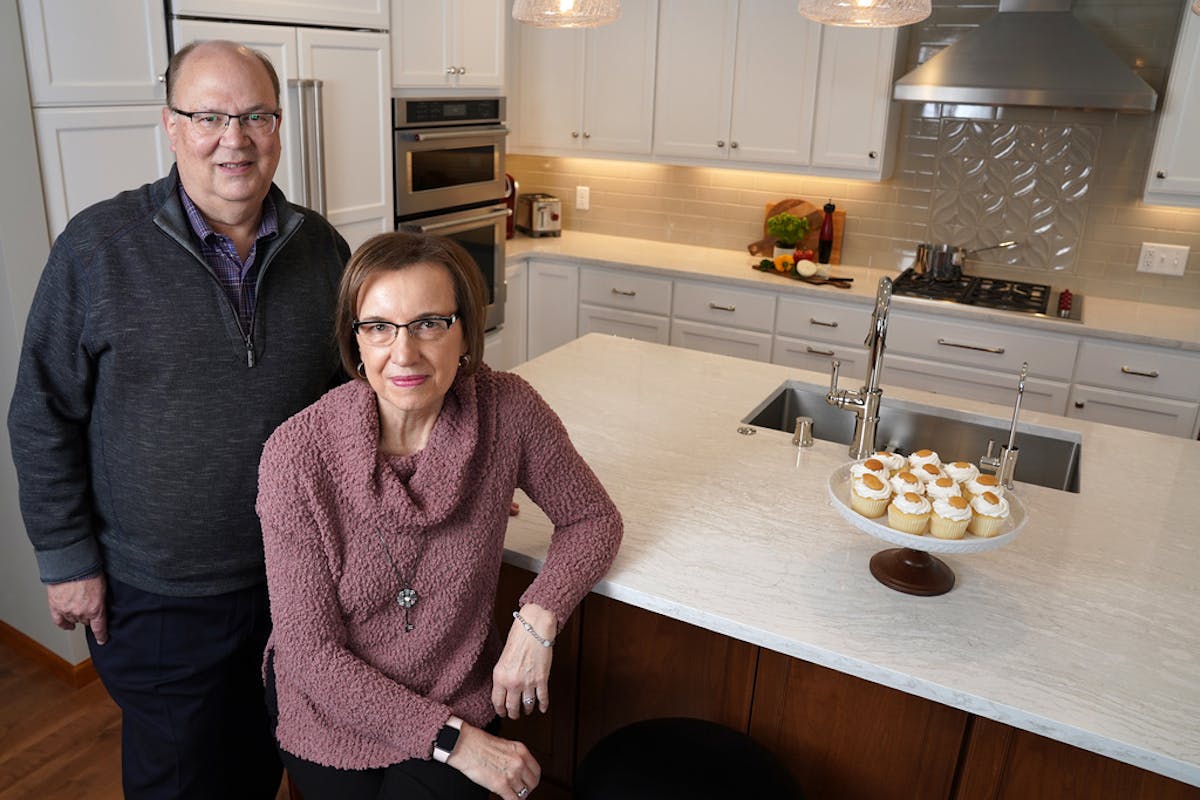When Somia Mourad first walked into the Kenwood home that she would buy, she saw dark-stained oak woodwork mixed with white woodwork on much of the main level. In the kitchen, three different wood finishes fragmented the space.
"The house had clearly gone through a ton of renovations," Mourad said. Though the work had been done with care and had been maintained well, she wanted a more cohesive look. So even before she, her husband, Keith Bush, and their two daughters moved into the 1891 three-story, painters were summoned. The fireplace mantel, centerpiece of a gracious living room, went from a dark oak stain to white enameled paint so that it would match the shelves on either side, which were already white. Beams in the ceiling got the same treatment. Wood panels in the dining room, which is open to the living room, also got coats of white paint.
Like many of today's home buyers, Mourad and Bush prefer the sleek, clean look of white enameled woodwork. But their experience also speaks to the conundrum of sellers considering whether to paint their woodwork in order to sell a house more quickly. Many buyers are seeking a move-in-ready home that reflects the modern aesthetic of clean white woodwork. But some homes, especially Craftsmans and Victorians, can dazzle with stained wood.
Mourad said she fell for her house the moment they walked in and saw the wood door that led to an entryway with delicately detailed woodwork.
"The entryway was so warm — just stunning — with intricate carvings on the wood banister at the staircase; I didn't want anyone to touch it," Mourad recalled. She kept that nod to the history of the home, even as the painters set to work on other parts of the house.
Sometimes a home shows best when it remains true to character. The oak beams and other wood accents of Craftsman-style bungalows, for example, help make those homes distinct.
"You wouldn't change the color of a classic car, even if it's a little funky, and sometimes you shouldn't paint the woodwork of a house," said Ruth Whitney Bowe, a real estate agent with Coldwell Banker Burnet's Minneapolis Lakes office.
In midcentury modern homes, wood paneling and other details can warm up the clean lines. In Victorians, intricate woodwork can speak to the home's original era — and can also be expensive to paint.
In addition to the style of the home, competition is another factor.
"If a home is in an area surrounded by other homes with wood cabinets in the kitchens, there may be no need to turn the woodwork white," Bowe said. "But most often, white woodwork helps a house sell."
Millennials love white
Jayne Morrison of Morrison Interiors in Plymouth is a designer and stager who helps people ready their homes for the marketplace.
"Millennial buyers want white woodwork," she said. "If we are staging for a young family in a neighborhood of young families, it is advisable to have woodwork painted white."
That's especially so for owners of homes built in the 1980s with the golden oak woodwork that was popular during that era.
"If you are in a 1980s house and you have a lot of that golden oak woodwork, [painting it white] will help sell your house faster," she said.
Morrison is seeing a generational shift as she works with homeowners on design.
"Baby boomers love woodwork," she said. "Millennial clients say they want an estimate for painting everything white. It is quite pricey, but often they go ahead and do it. They want that total white woodwork look."
Whether it is sellers or new homeowners hoping to create a space they adore, the decision to paint is often based on "that bad word that starts with 'b': budget," Morrison said. When clients decide to do the painting themselves to save money, she suggests they start in one room and see how it goes before tackling the entire house.
Painted woodwork is a fresh look, she notes, and it's been going strong since 2010. In recent years, she has seen the white warming up a bit, shifting to warm gray.
When Mourad got around to remodeling her kitchen and ridding the space of three different wood finishes, in fact, a designer suggested that she paint the center island gray to contrast with the white paint elsewhere in the kitchen and the home. Mourad declined, preferring to keep the look cohesive. Plus, she said, "I knew I would never tire of white."
And she hasn't. "Now when I walk into the house, I feel peaceful, uplifted, happy. There is a lightness and a calm," she said. "It is amazing how much woodwork impacts the feel of a home."
Kerri Westenberg • 612-673-4282 @kerriwestenberg

The 5 best things our food writers ate this week

A Minnesota field guide to snow shovels: Which one's best?

Summer Camp Guide: Find your best ones here

Lowertown St. Paul losing another restaurant as Dark Horse announces closing

